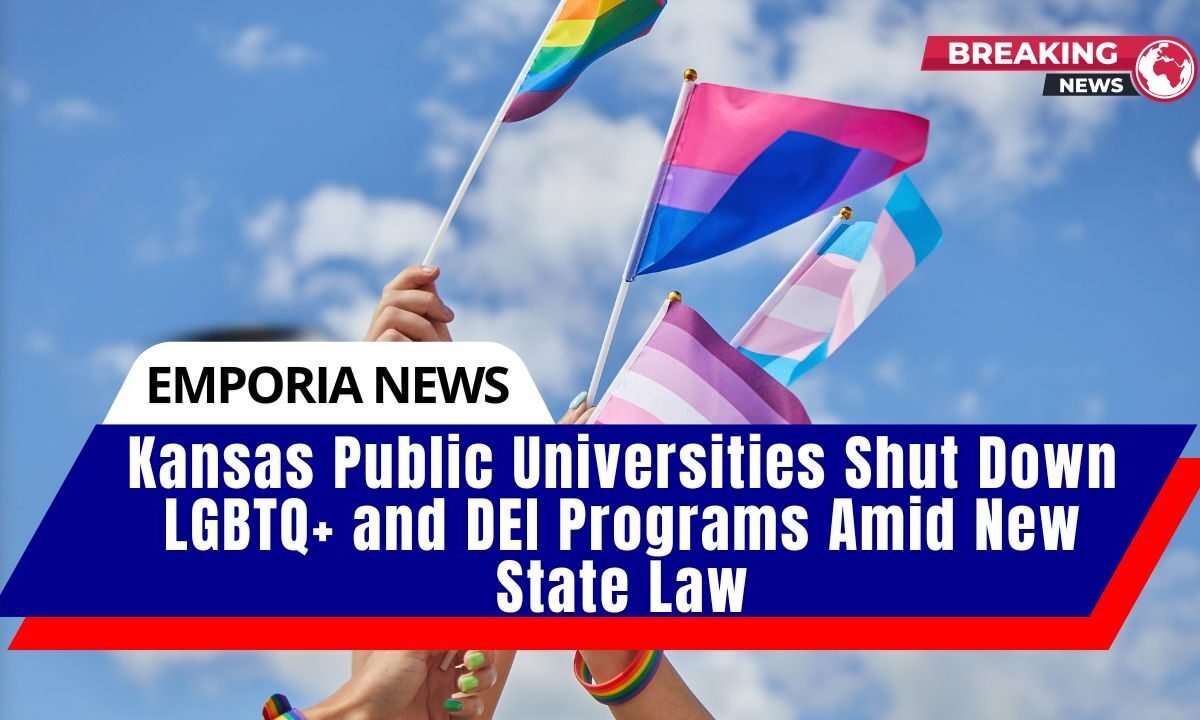Both the University of Kansas and Kansas State University have announced the termination of their LGBTQ+ support services and diversity, equity, and inclusion (DEI) programs in response to Senate Bill 125, a recently enacted Kansas state law.
The legislation, part of the latest state budget package, mandates that all state agencies, including public universities, eliminate any DEI-related initiatives.
The law also prohibits state employees from using gender-specific pronouns or referencing “gender ideology” in email signatures.
Notably, the bill lacks clear definitions of DEI or gender ideology and occupies only a few lines in the 300-page legislation. Nonetheless, universities have begun interpreting and applying it independently.
Kansas State University to Close LGBTQ+ Spectrum Center
Kansas State University revealed that it will close its Spectrum Center, a key resource for LGBTQ+ students, by the end of July.
In a message to the campus, Thomas Lane, Dean of Students and Vice President for Academic Success and Student Affairs, acknowledged the center’s long-standing contributions.
“Thanks to the dedication of the center’s staff and the resilience of our LGBTQ+ students and allies, the Spectrum Center has played a vital role in making K-State a nationally recognized inclusive campus,” Lane wrote.
Although the center’s physical location will be shuttered, Lane emphasized that the Division of Academic Success and Student Affairs remains committed to supporting all students, affirming the university’s foundational belief in inclusivity.
University of Kansas Moves Forward with DEI Ban
At the University of Kansas, officials issued a letter detailing the Kansas Board of Regents’ directive to halt all DEI-related activities and remove pronouns from email signatures.
According to the communication, most of the changes have already been implemented, with the pronoun removal policy set to take effect by the end of July for all students and staff.
Political Context and Criticism
The law was passed in March by a Republican-controlled Legislature and signed by Democratic Governor Laura Kelly in April.
Though Kelly has a history of vetoing anti-LGBTQ+ legislation, she allowed a previous anti-DEI bill to become law last year without her signature. Despite her past actions, she has not publicly commented on Senate Bill 125’s enforcement.
Ross Marchand, program counsel at the Foundation for Individual Rights and Expression, criticized the law, calling it unconstitutional.
“It’s vague, overly broad, and creates major issues for First Amendment rights,” Marchand told Inside Higher Ed. “These flaws make it highly problematic from a legal standpoint.”
The enforcement of Senate Bill 125 has led to the rapid dismantling of LGBTQ+ support systems and DEI programs at major Kansas universities.
While officials emphasize continued support for affected students, critics argue that the law’s vague language and restrictive policies threaten free expression and inclusivity in higher education.




